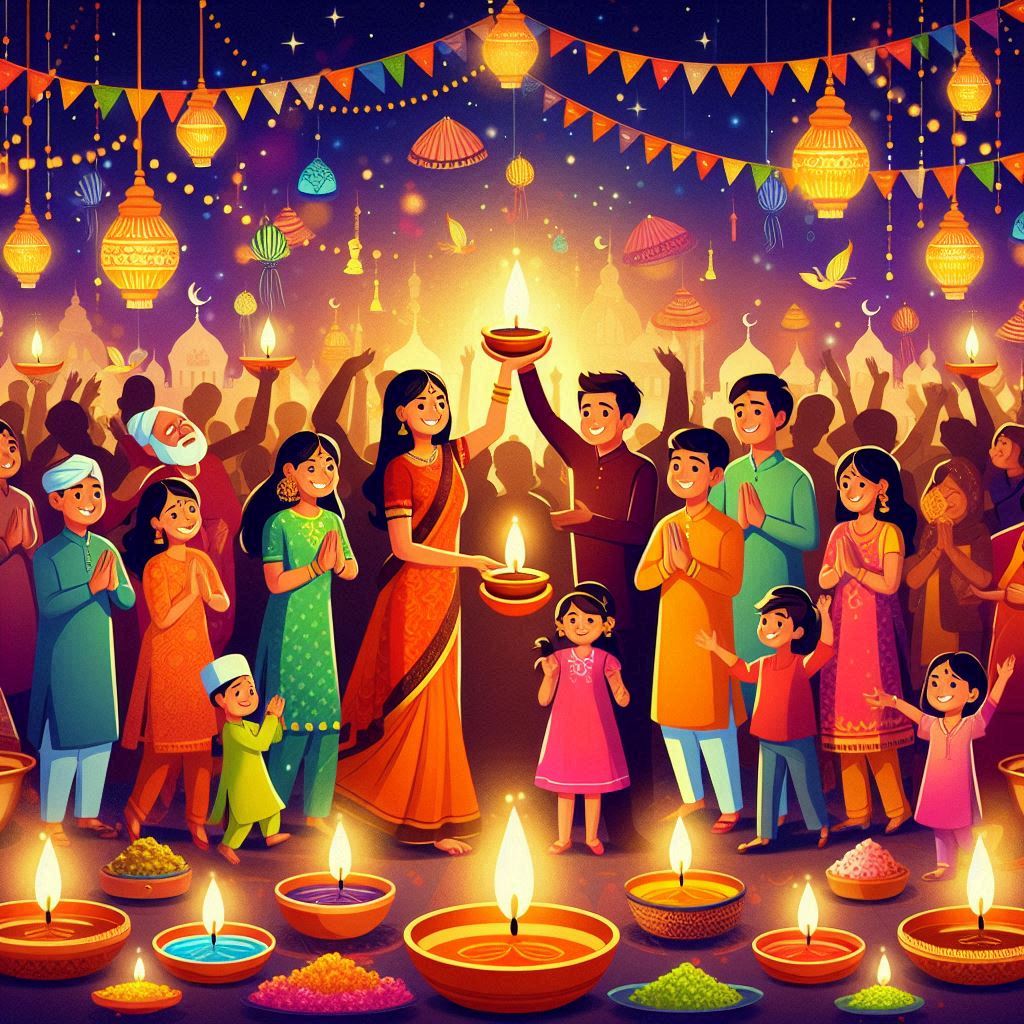Diwali 2024: The Festival of Lights Celebrated Across India, is one of the most important and widely celebrated festivals in India. It is a time of joy, hope, and renewal. This year, Diwali will be celebrated from Sunday, November 12, 2024, over a period of five days. The festival holds great significance for Hindus, but it is also observed by people from other Indian religions like Jainism, Sikhism, and Buddhism.
The Meaning Behind Diwali
Diwali symbolizes the spiritual victory of light over darkness, good over evil, and knowledge over ignorance. For many, it is a time of reflection and gratitude. The word “Diwali” comes from the Sanskrit word “Deepavali,” which means “a row of lights.” During this festival, homes, streets, and public places are lit with small oil lamps called diyas, candles, and colorful electric lights. The glow of these lamps represents the triumph of goodness and wisdom.
In Hindu tradition, Diwali commemorates the return of Lord Rama, his wife Sita, and his brother Lakshmana to their kingdom after 14 years of exile. They were welcomed back with the lighting of oil lamps, symbolizing the end of darkness in their lives. People today continue this tradition to remind themselves that good will always win over evil.
Variations of Diwali Across Religions Diwali 2024: The Festival of Lights
Although Diwali is often associated with Hinduism, it is also an important festival for people from other religions in India. For Jains, Diwali marks the moment Lord Mahavira, the 24th Tirthankara, attained moksha or liberation. Sikhs celebrate Diwali to honor the release of Guru Hargobind Ji, their sixth Guru, from imprisonment. In Buddhism, particularly among the Newar people of Nepal, Diwali is known as Tihar and is celebrated to honor various gods, animals, and ancestors.
Each community celebrates Diwali in a way that reflects their religious beliefs, but the common theme is the celebration of light and knowledge over ignorance.
The Five Days of Diwali 2024: The Festival of Lights
Diwali celebrations take place over five days, each with its own special meaning and customs:
- Day 1 – Dhanteras: On this day, people clean their homes and buy new items, especially metals like gold or silver. It is considered an auspicious day for wealth and prosperity.
- Day 2 – Naraka Chaturdashi (Choti Diwali): This day commemorates the victory of Lord Krishna over the demon Narakasura. People light lamps to drive away darkness and evil spirits.
- Day 3 – Lakshmi Puja (Main Diwali): This is the most important day of the festival. People worship Goddess Lakshmi, the goddess of wealth and prosperity. Homes are decorated with lights and rangoli, and fireworks are set off.
- Day 4 – Govardhan Puja: On this day, people worship Lord Krishna for lifting the Govardhan Hill to protect the villagers from a storm. Food offerings are made to express gratitude for abundance.
- Day 5 – Bhai Dooj: This day is dedicated to the bond between brothers and sisters. Sisters pray for their brothers’ well-being, and brothers offer gifts in return.
Preparations and Celebrations
People begin preparing for Diwali weeks in advance. Homes are cleaned thoroughly, and new clothes are purchased for the occasion. Special sweets like ladoos, barfis, and jalebis are made or bought. Many people also exchange gifts with friends and family as a sign of love and good fortune.
On the day of Lakshmi Puja, families gather to offer prayers to Goddess Lakshmi. The puja is a way to invite wealth and prosperity into the home. Afterward, people light lamps and set off fireworks to chase away any negativity. The streets are filled with joy and excitement as people greet one another with smiles and sweets.
Environmental Concerns
In recent years, concerns have been raised about the environmental impact of fireworks during Diwali. Air pollution levels rise, especially in large cities, due to the excessive use of firecrackers. As a result, many people are choosing to celebrate in an eco-friendly way by lighting fewer fireworks and opting for natural, biodegradable decorations.
